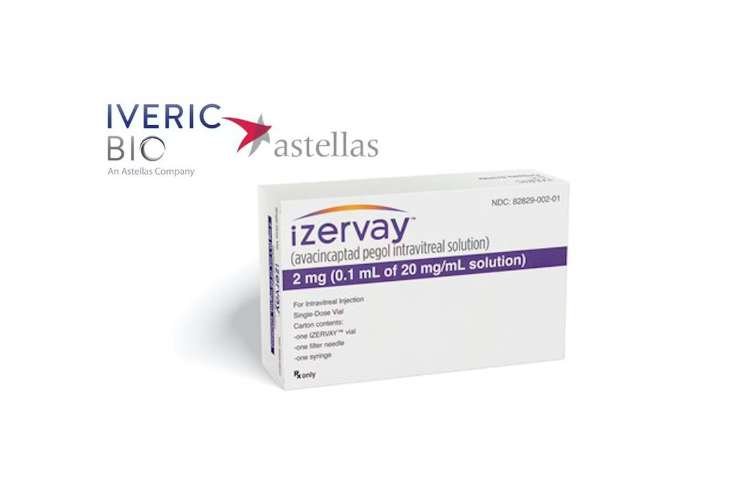Astellas, having recently secured FDA approval for its drug Izervay to treat geographic atrophy (GA), is now in direct competition with Apellis and its GA treatment, Syfovre, which received FDA approval earlier this year. These two drugs are the only available treatments for GA, a condition that affects approximately 1.5 million individuals in the United States as age-related macular degeneration (AMD) progresses. Industry experts anticipate that this field has the potential to become a lucrative pharmaceutical category in the years ahead.
In a recent development, Astellas unveiled the results of a phase 3 trial assessing the effectiveness and safety of Izervay over a 24-month period. While the company confirmed that the study achieved its primary goal of reducing the rate of GA growth compared to a placebo (sham), they didn’t provide detailed insights into the findings.
“We are excited about these results, which show that IZERVAY continued to slow the rate of GA growth with a consistent safety profile after two years of treatment. We look forward to sharing results at a future scientific congress and with regulatory agencies.”
– Dhaval Desai, PharmD, Senior Vice President and Chief Development Officer, Iveric Bio
During the GATHER2 trial, patients who received monthly doses of Izervay in the first year were divided into two groups: one continued with monthly doses, and the other received doses every other month. Their outcomes were compared to a group of 203 patients who received sham treatment.
Astellas didn’t disclose specific performance differences between the two Izervay dosing regimens but did emphasize that the monthly dosing successfully slowed GA growth compared to the placebo over 24 months. Moreover, the every-other-month dosing showed a similar reduction in GA growth rates versus the placebo.
Regarding safety, the results after 24 months of treatment remained consistent with findings from two earlier 12-month phase 3 trials. Importantly, there were no new safety concerns raised during this assessment.
In the competitive landscape with Apellis, safety considerations are pivotal. In July, concerns about eye inflammation, including six cases of occlusive retinal vasculitis, arose in patients treated with Syfovre, highlighting the significance of safety profiles.
Astellas reported one case of culture-positive endophthalmitis and one instance of non-serious intraocular inflammation during the GATHER2 trial. Importantly, no cases of retinal vasculitis or ischemic neuropathy were identified.
Of those who received Izervay, 12% experienced choroidal neovascularization, compared to 9% in the sham group.
Dhaval Desai, Senior VP and Chief Development Officer of Astellas’ subsidiary Iveric Bio, mentioned that the company intends to share these results at upcoming scientific conferences and with regulatory agencies.
Astellas has made a significant bet on Izervay, with a $5.9 billion acquisition of Iveric in May. The deal represented a 22% premium on the share price of the New Jersey-based company and signals the company’s commitment to advancing treatment options in the GA space under the leadership of its new CEO, Naoki Okamura.





























